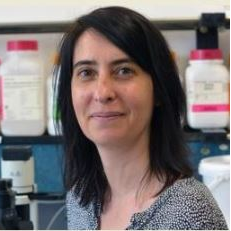Understanding Protein/Peptide Self-Assembly Using Structural and Biophysical Chemistry 2.0
A special issue of Molecules (ISSN 1420-3049). This special issue belongs to the section "Physical Chemistry".
Deadline for manuscript submissions: closed (31 July 2023) | Viewed by 228
Special Issue Editors
Interests: peptide self-assembly; supramolecular chemistry; chemical biology; circular dichroism; gluten-related disorders; gliadin peptide oligomers; translational chemistry
Special Issues, Collections and Topics in MDPI journals
Interests: protein structure; protein aggregation; celiac disease; Fe-S cluster biogenesis; spectroscopy; microscopy; protein oligomerization; self-assembly
Special Issue Information
Dear Colleagues,
Protein and peptide self-assembly is an emerging area of research at the triple point where chemistry, biology, and physics meet.
Protein self-assembly makes up functional as well as pathological superstructures in living cells. For example, amyloid oligomers, protofilaments, and fibrils are associated with prions, Alzheimer’s disease, Parkinson’s disease, and Huntington’s disease, among others. Moreover, secondary structure transition and self-assembly of synthetic peptides into gels, fibrils, fibers, tubules, or sheets have found applications in tissue engineering and biomedical devices.
The purpose of this Special Issue is to show the power of biophysical chemistry as an interdisciplinary approach to elucidate at the molecular level the process of self-assembly/aggregation in proteins and peptides. Advances in understanding protein/peptide self-assembly with a multi-technique methodology are particularly welcome. Additionally, emerging experimental and computational research that offers new concepts, models, and strategies is encouraged. Contributions to this Special Issue in the form of original research, communications, perspectives, hypotheses, and review articles that favor advances in this fascinating area of research are cordially invited.
Dr. Veronica Dodero
Dr. Maria Georgina Herrera
Dr. Maria Julia Amundarain
Guest Editors
Manuscript Submission Information
Manuscripts should be submitted online at www.mdpi.com by registering and logging in to this website. Once you are registered, click here to go to the submission form. Manuscripts can be submitted until the deadline. All submissions that pass pre-check are peer-reviewed. Accepted papers will be published continuously in the journal (as soon as accepted) and will be listed together on the special issue website. Research articles, review articles as well as short communications are invited. For planned papers, a title and short abstract (about 100 words) can be sent to the Editorial Office for announcement on this website.
Submitted manuscripts should not have been published previously, nor be under consideration for publication elsewhere (except conference proceedings papers). All manuscripts are thoroughly refereed through a single-blind peer-review process. A guide for authors and other relevant information for submission of manuscripts is available on the Instructions for Authors page. Molecules is an international peer-reviewed open access semimonthly journal published by MDPI.
Please visit the Instructions for Authors page before submitting a manuscript. The Article Processing Charge (APC) for publication in this open access journal is 2700 CHF (Swiss Francs). Submitted papers should be well formatted and use good English. Authors may use MDPI's English editing service prior to publication or during author revisions.
Keywords
Areas of interest in protein/peptide:
- self-assembly
- aggregates and their interaction with biological systems
- aggregation in cells
- folding/misfolding
- intrinsically disordered systems
- liquid–liquid phase separation
- molecular modeling (molecular dynamics, docking)
- development of characterization techniques (microscopy, spectroscopy, modeling, etc.)








